Directions (1-3): Study the data carefully and answer the questions accordingly.
Seven persons in a family. There are two married couples and three generations in this family. Latika is the daughter-in-law of David. Chitra is not the nephew of Jiya. Gagan is the mother of Karan. Karan is the brother of Jiya and the father of Hemant. Jiya is the sister-in-law of Latika and is unmarried. David is the grandfather of Chitra. Hemant is a male member of the family.
Q1. How Hemant is related to Jiya?
(a) Niece
(b) Nephew
(c) Daughter
(d) Son
(e) Cannot be determined
Q2. Find the incorrect statement.
(a) Gagan is the mother-in-law of Latika
(b) Jiya is the daughter of David
(c) Chitra is the granddaughter of Gagan
(d) Hemant is the son of Latika
(e) All are correct
Q3. How is Chitra related to David?
(a) Grand Daughter
(b) Grand father
(c) Grand mother
(d) Brother
(e) Daughter
Directions (4-6): Study the information given below and answer the questions based on it.
Seven people A, B, C, D, E, F and G belong to the same family. It is a three-generation family. There are three couples in the family. F is the granddaughter of A. G is the mother of B. E is the sister-in-law of B. A has two sons. D is the aunt of F and sister-in-law of C. C is the father of F. E is wife of C.
Q4. How is G related to C?
(a) Mother
(b) Sister
(c) Grandmother
(d) Mother-in-law
(e) None of these
Q5. How is E related to A?
(a) Daughter
(b) Son
(c) Daughter-in-law
(d) Mother
(e) None of these
Q6. How is B related to F?
(a) Father
(b) Brother
(c) Mother
(d) Uncle
(e) None of these
Directions (7-9): Study the following information carefully and answer the given questions.
In a three-generation family, there are eight members i.e., B, D, Y, K, U, T, M and W, with two married couples. T is the uncle of W who is the granddaughter of Y. U is the son-in-law of D who is the mother of T. Y has two children and only one is daughter among them. B is the sister-in-law of K and daughter of Y. K and M are not female. M is sibling of D. Both T and K are unmarried.
Q7. If I is the father of K, then what is the relation of U with respect to I?
(a) Brother
(b) Son-in-law
(c) Son
(d) Sister
(e) None of the above
Q8. If T has one son and one daughter, then how many members are in 2nd and 3rd generation?
(a) Three
(b) Six
(c) Nine
(d) Seven
(e) Eight
Q9. How is M related to T?
(a) Uncle
(b) Father-in-law
(c) Sister
(d) Son
(e) Father
Directions (10-13): Study the following data carefully and answer the questions accordingly.
There are nine members who belong to a family having three generations. There are three married couples. F and G are siblings. G is the only daughter of C and she is married. I is the Nephew of D. H has no child. C is the father-in-law of E who is not a male. D is the son of A who is the husband of B. D is the brother of E. H is the brother-in law of F.
Q10. How F is related to I?
(a) Grandfather
(b) Sister
(c) Uncle
(d) Father
(e) None of these
Q11. Who is the maternal grandfather of I?
(a) C
(b) B
(c) A
(d) D
(e) Can’t be determined
Q12. How E is related to B?
(a) Son-in-law
(b) Daughter-in-law
(c) Daughter
(d) Sister
(e) None of these
Q13. How D is related to F?
(a) Son
(b) Brother
(c) Sister-in-law
(d) Brother-in-law
(e) None of these
Directions (14-15): Study the following data carefully and answer the questions accordingly.
There are six members in a family with two generations. Farah is the sister-in-law of Gita who is the mother of Eshan. Divya has no sister-in-law. Chirag is the father-in-law of Divya. Hanu is the brother of Eshan who is unmarried. Farah is unmarried.
Q14. How Hanu is related to Divya?
(a) Uncle
(b) Son
(c) Brother
(d) Husband
(e) None of these
Q15. How Chirag is related to Eshan?
(a) Aunt
(b) Uncle
(c) Father
(d) Mother
(e) None of these
Solutions
Solutions (1-3):
Sol.
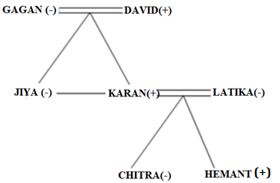
S1. Ans. (b)
S2. Ans. (e)
S3. Ans. (a)
Solution (4-6):
Sol.
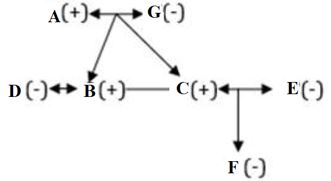
S4. Ans. (a)
S5. Ans. (c)
S6. Ans. (d)
Solutions (7-9)
Sol.
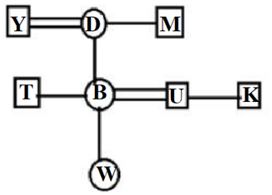
S7. Ans. (c)
S8. Ans. (d)
S9. Ans. (a)
Solutions (10-13):
Sol.

S10. Ans. (d)
S11. Ans. (c)
S12. Ans. (c)
S13. Ans. (d)
Solutions (14-15):
Sol.

S14. Ans. (d)
S15. Ans. (c)


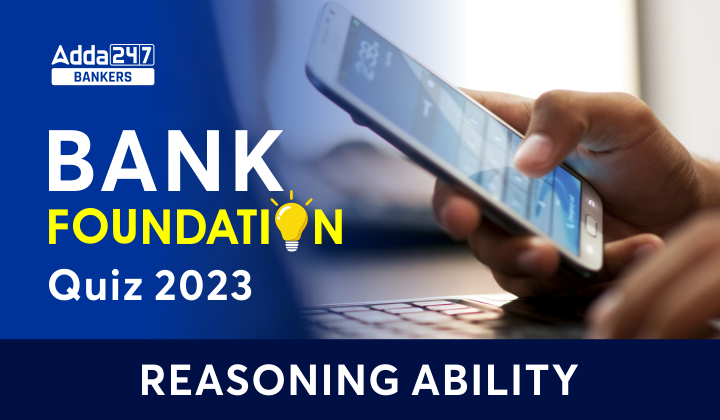
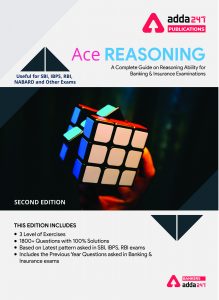

 GA Capsule for SBI Clerk Mains 2025, Dow...
GA Capsule for SBI Clerk Mains 2025, Dow...
 The Hindu Review October 2022: Download ...
The Hindu Review October 2022: Download ...
 AIC Management Trainee Syllabus and Exam...
AIC Management Trainee Syllabus and Exam...





